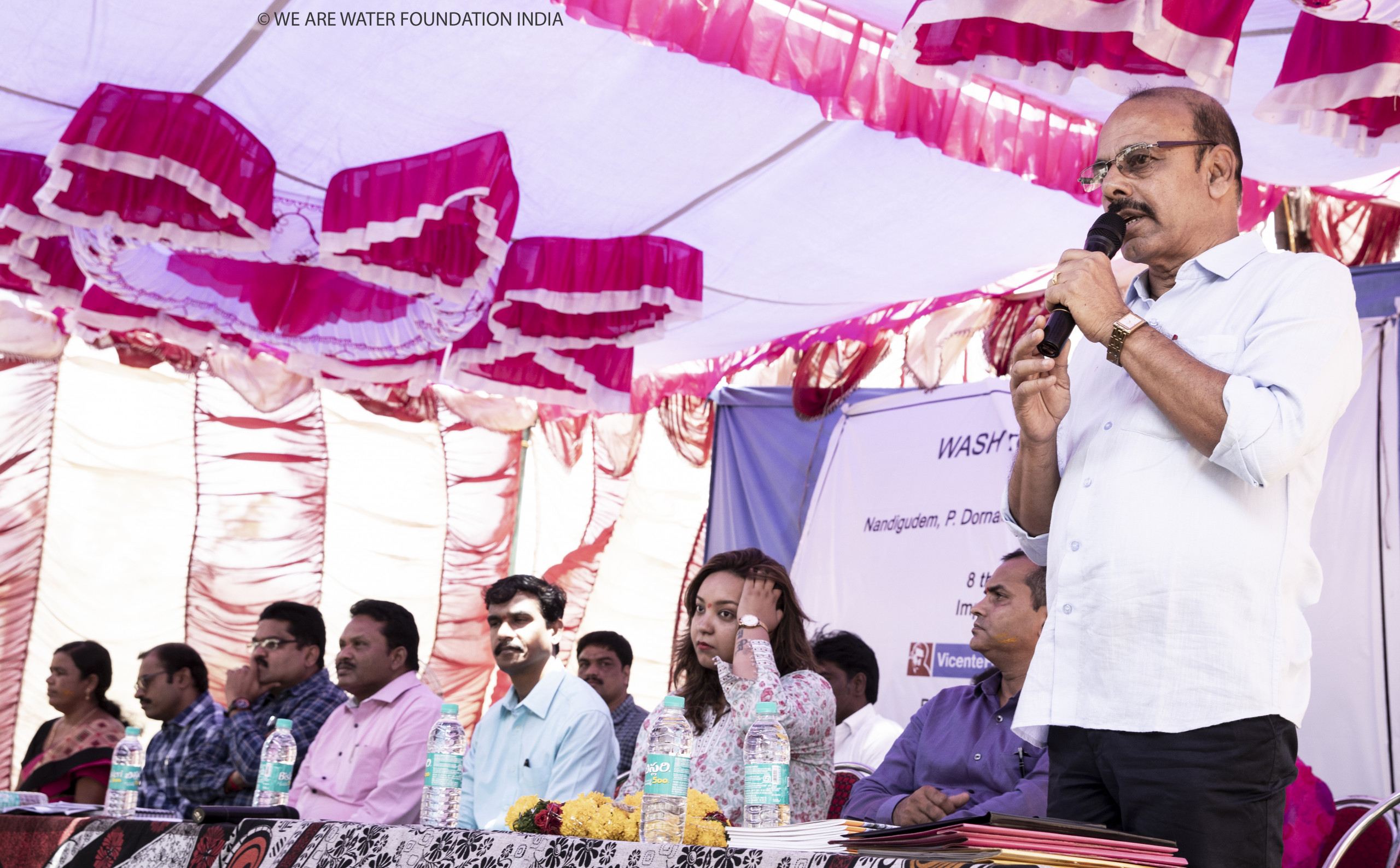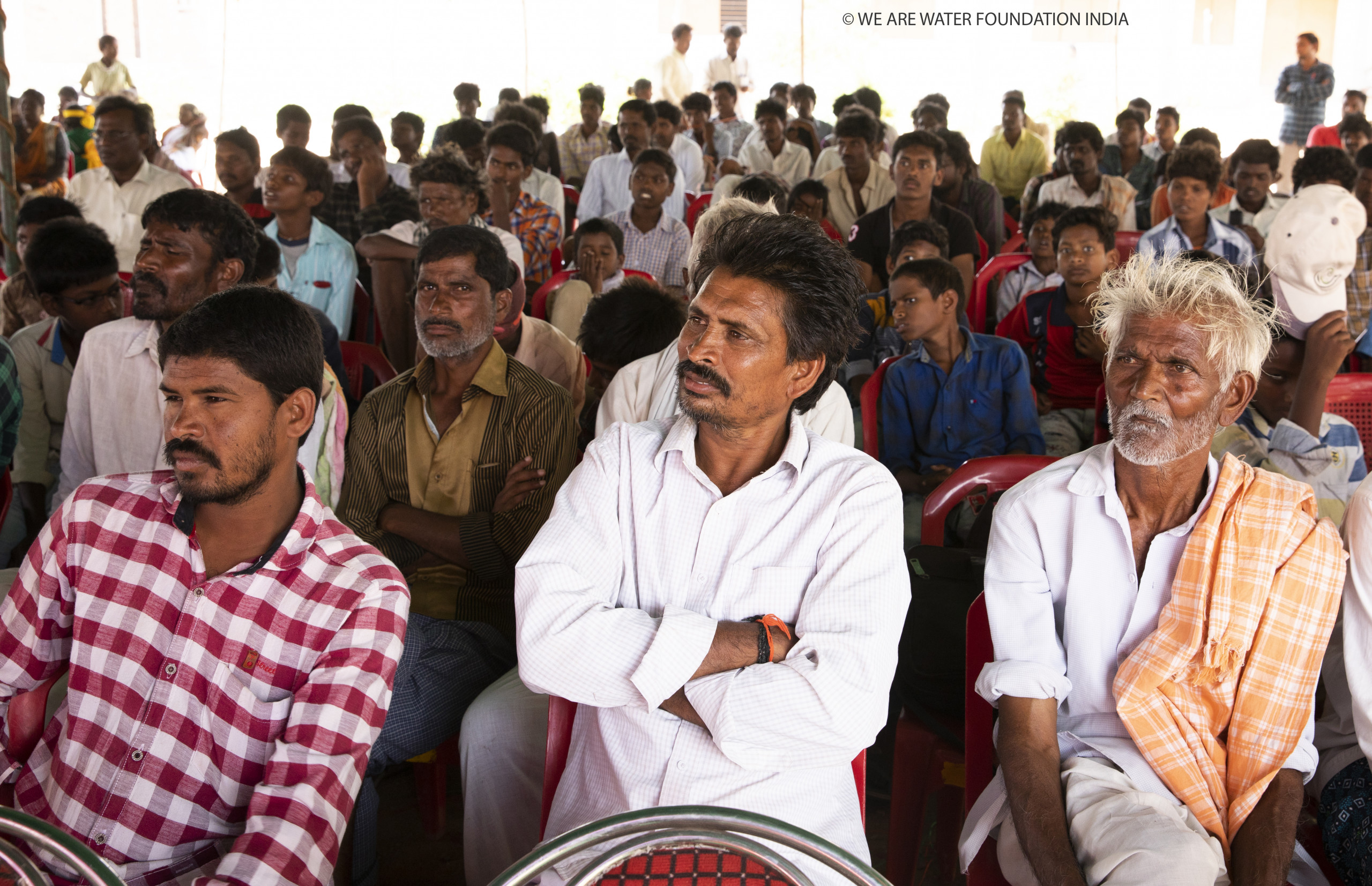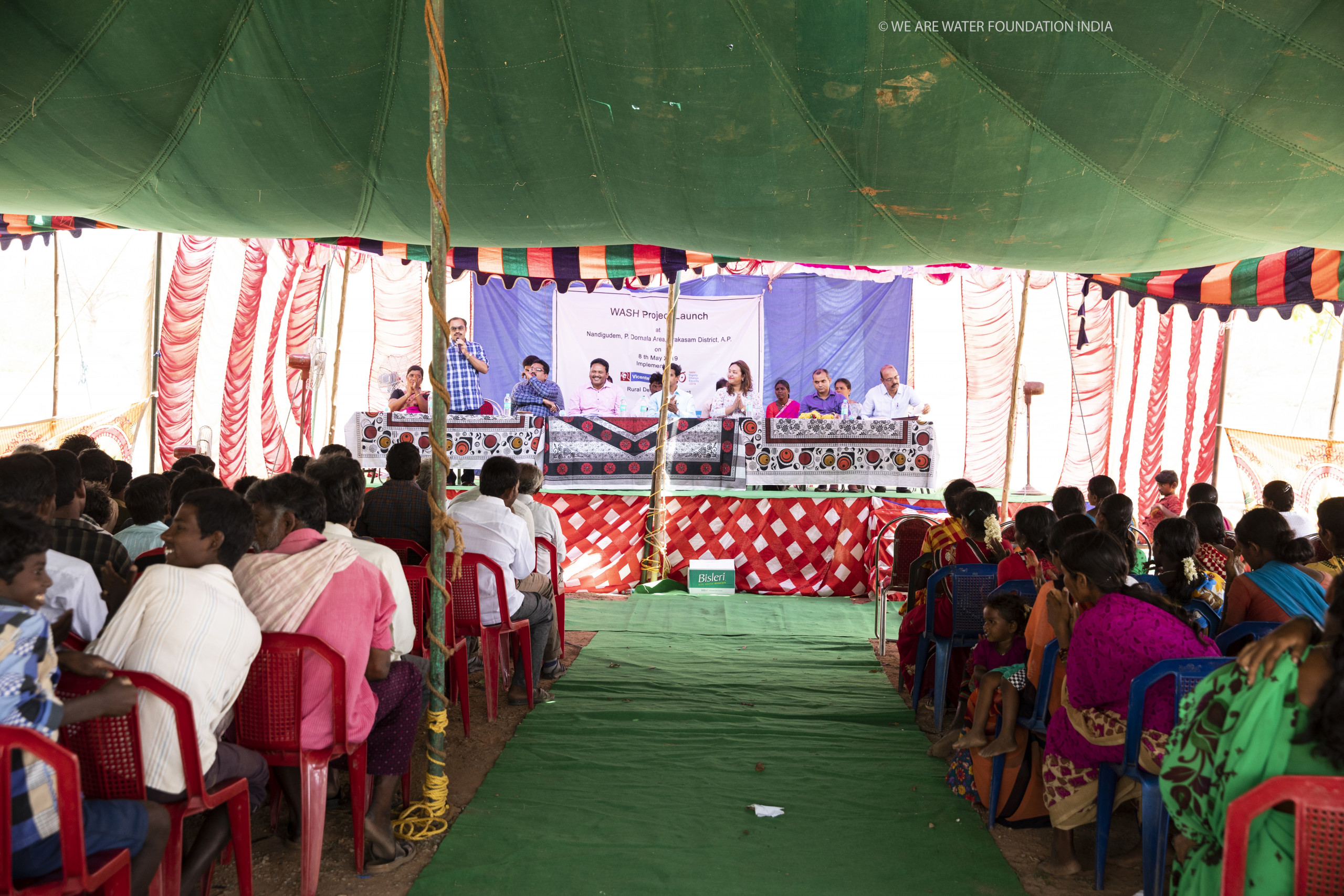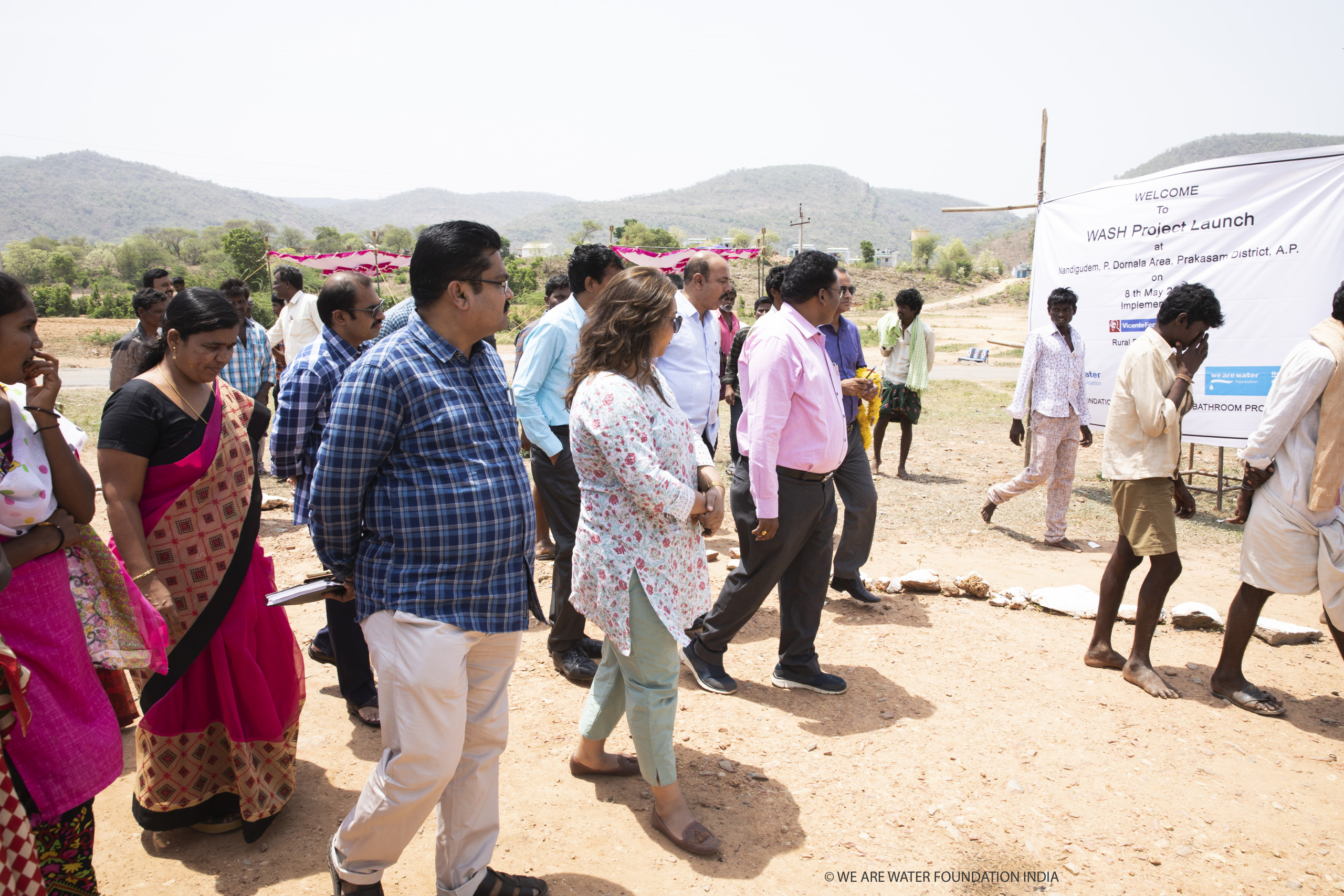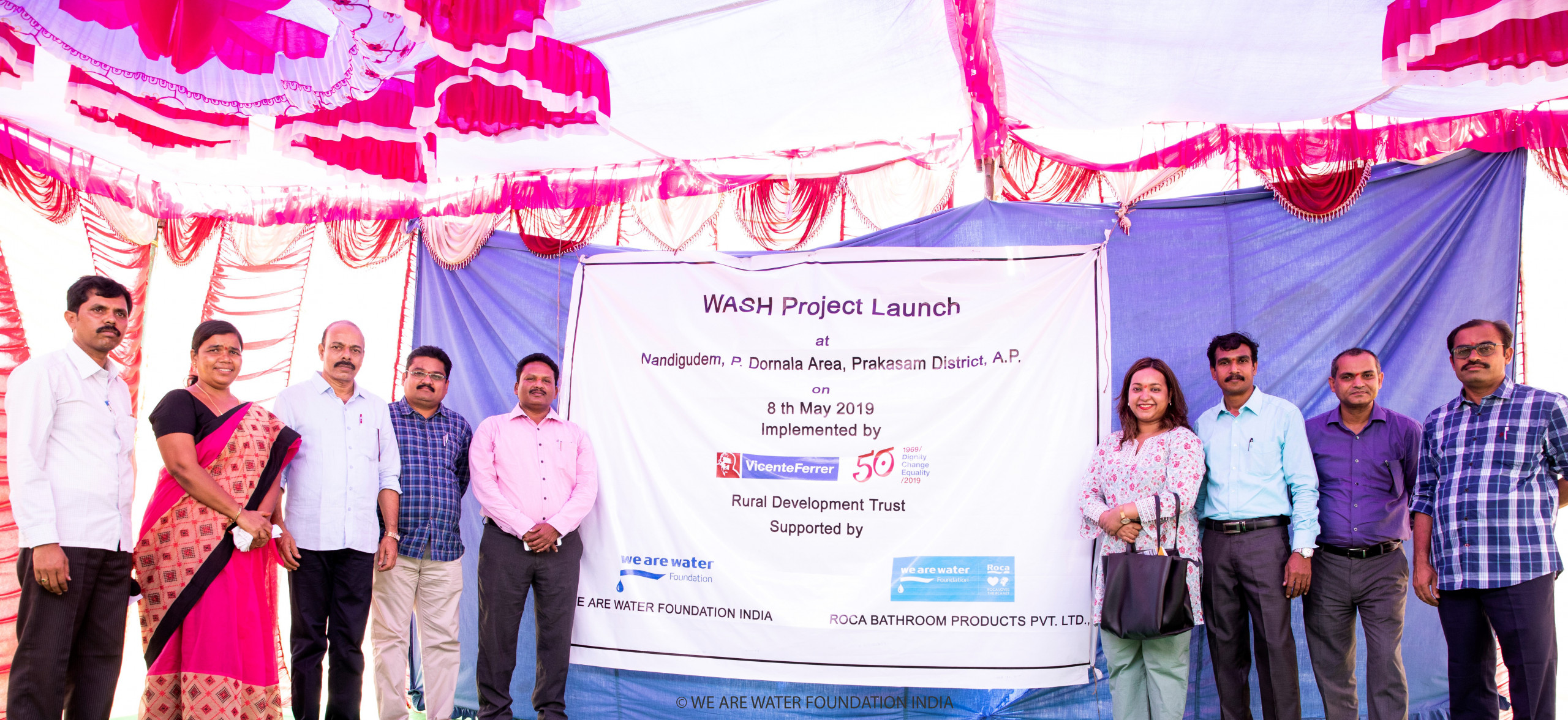Doronala, Andhra Pradesh, India
In collaboration with

April 2019 – March 2020
We build toilet blocks and sanitation units to eradicate open defecation and bring clean water to communities and schools to reduce school dropouts and the time and burden on women and girls fetching water.
Objectives
- Build toilet blocks and sanitation units and develop school drinking water projects to reduce dropouts.
- Reduce the time and workload of women, who can then use it for community activities and income generation.
- Eradicate open defecation and promote gender equality.
Beneficiaries
2,000 direct
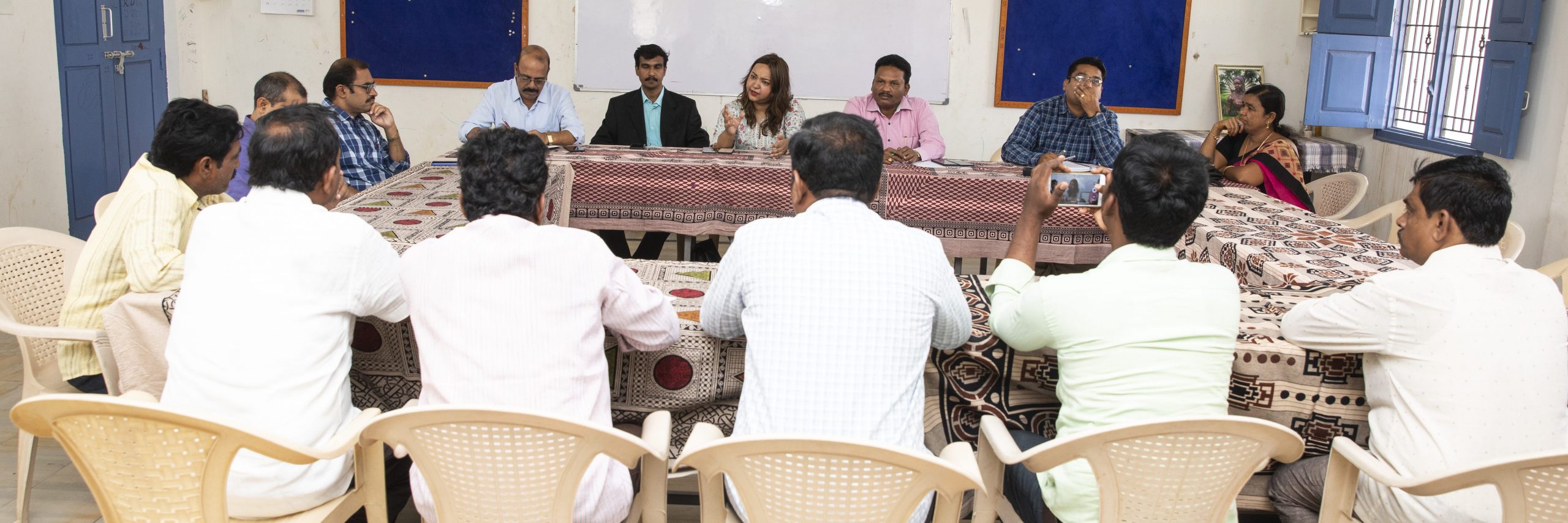
On the ground
The Chenchu, tribal groups that live in the area, are innocent, illiterate and have no resources. They are very vulnerable and have a severe problem of lack of access to water that affects the proper use of sanitation facilities. Women are the most affected.
The tribal population of Nandigudem, Bayannaswamy Gudem, Marellamotu Yenugula Dinnapadu and Y.Cherlopalli, in the P. Dornala area of Andhra Pradesh, is at high risk of malnutrition, with lack of access to water and poor sanitary conditions due to socio-cultural, socioeconomic and environmental factors. These factors degrade their current living conditions and the attainment of health.
The primitive tribal groups, locally called Chenchu, who live in these villages, are innocent, illiterate and have no resources; they are therefore very vulnerable.
There is a serious problem of lack of access to water that prevails in these villages. This especially affects women who have to walk between 3 and 5 km to fill a pot of water for their family. This task increases their workload, since they have less time to concentrate on productive activities for their families and the community. In addition, due to this lack of access to water, they cannot take a bath regularly and use the bathrooms that are provided along with the houses built by Vicente Ferrer Foundation. These conditions contribute to increasing Chenchu’s health problems.
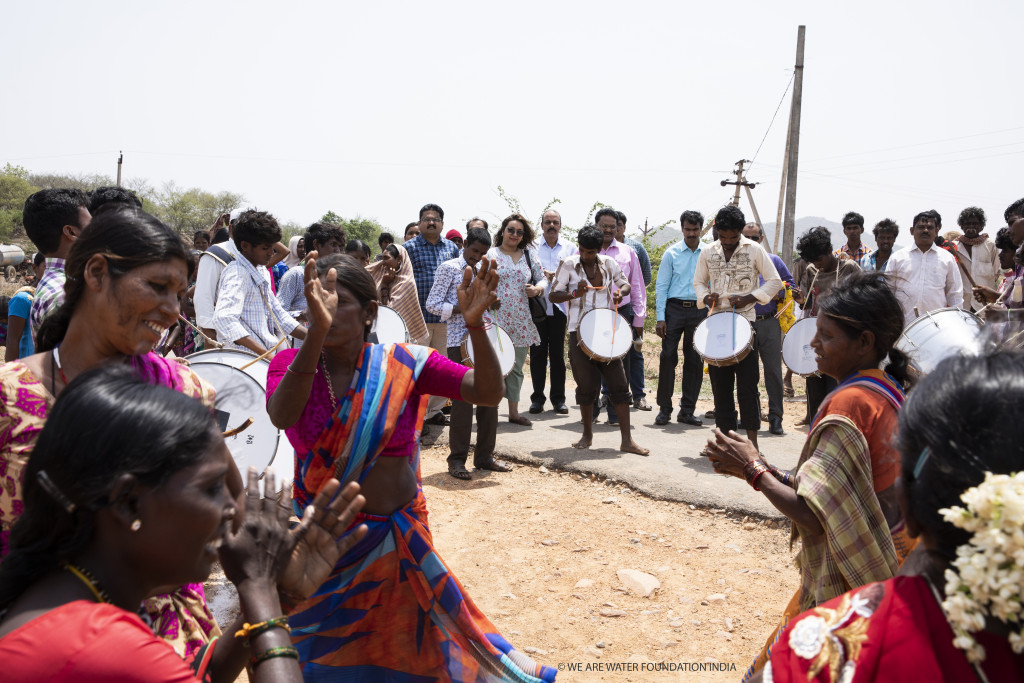
In detail
Rural Development Trust (RDT) has been working in more than 3,600 villages spread across Andhra Pradesh and Telangana. When the We Are Water Foundation agreed to collaborate with RDT, we critically analyzed the situations of different areas to take up the project. In our analysis, we noticed that in other places the communities were strong and able to mobilize the resources from the Government.
These villages were selected to provide water with an intent of not only reducing the women’s work load, but also to improve the health and hygienic conditions of the communities.
After a hydrological study, we could confirm that there were no perennial water sources like lakes, tanks or ponds in the area of the three villages. Therefore, water harvesting was planned by drilling the bore wells at the points determined by the study.
Regarding school sanitation, we have chosen two Government high schools to provide good toilet complexes separately for both boys and girls. There are enough students and staff in the schools. But, there is no sufficient number of toilets catering to the needs of the students.
In both schools, the Government provides midday meals every day. But, there is no access to drinking water for the students. They are drinking the contaminated water available in the tubs in the village (the water is available in both institutions from the existing bore wells and water storage tanks done by the Government). So, in order to provide clean drinking water, these two schools are chosen to provide safe drinking water by installing reverse osmosis (RO) plants.
Thus, from the same points, water is obtained for the toilets, as well as for the RO plants. The water samples will be sent to the analysis laboratories and, once they have received the report, the RO plants will be designed according to the quality of the water.
The project is based on the construction of a ground level tank in Nandigudem, 3 cisterns in Bayannaswamy Gudem and 2 cisterns in Marellamotu. Cisterns are prefabricated water storage tanks.
The toilet blocks and bathrooms consist of 2 separate units for boys and girls and the installation of a RO in two government secondary schools located in Yenugula Dinnapadu and in Y.Cherlopalli properly connected to the running water supply.
The project incorporates awareness through workshops for men and women, as well as for children about the importance of water, sanitation and hygiene.


